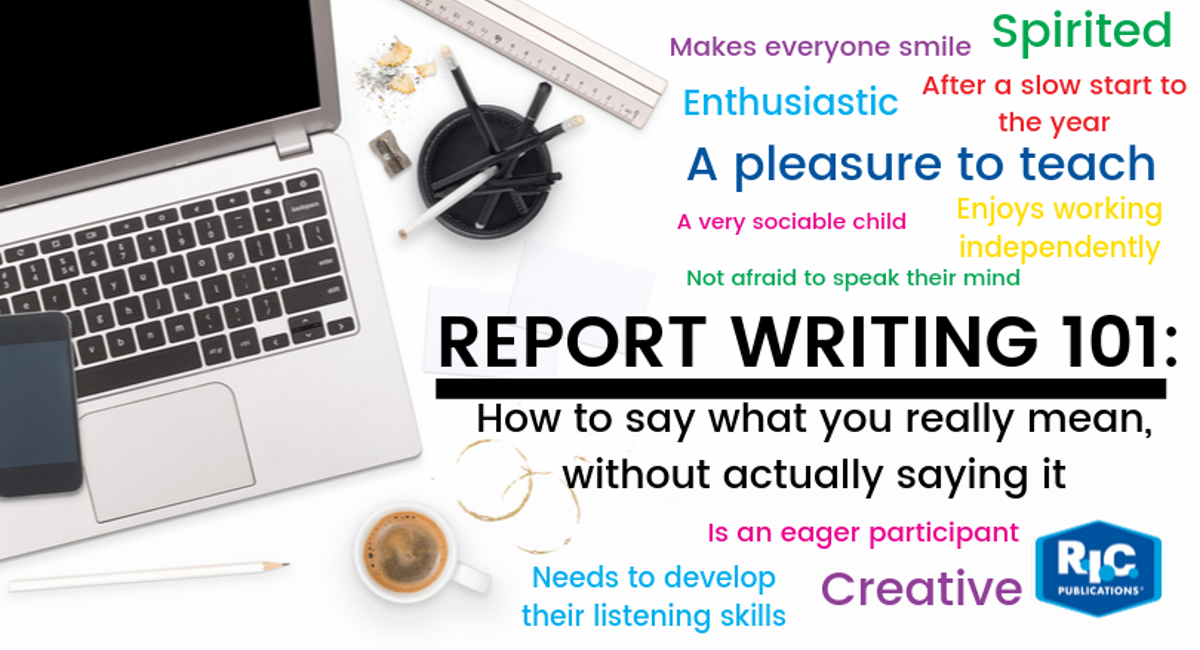- Tuesday 08 October 2019
- 0 Comments
When we think of writing end-of-year reports, many mixed emotions may surface. After all, this is more than likely the last time you are going to have these children in your class. Throughout the school year you have probably yelled profusely, fought vehemently, laughed and even cried real tears with, at and because of them. See, very mixed emotions.
Whichever emotions you have experienced throughout the year, one thing is certain: you know these children, and you know what you think of them.
In a world overrun by political correctness, a school report is not the ideal place to share your most honest, unfiltered opinion of a student. But this was not always the case for teachers. During the twentieth century it seemed that teachers could write just about anything they wanted. Take a look at these somewhat inappropriate yet honest comments written about students that have actually gone on to achieve great things since leaving school:
- ‘Certainly on the road to failure … hopeless … rather a clown in class … wasting other pupils’ time’ – John Lennon, musician.
- ‘Stephen has glaring faults and they have certainly glared at us this term’ – Stephen Fry, actor and writer.
- ‘He will either go to prison or become a millionaire’ – Sir Richard Branson, entrepreneur.
- ‘He will never amount to anything’ – Albert Einstein, physicist.
- ‘A persistent muddler. Vocabulary negligible, sentences malconstructed (sic). He reminds me of a camel’ – Roald Dahl, author.
As refreshingly honest (and humorous) as these comments are, they obviously do not translate to the professionalism required for report writing today. So how does a teacher diplomatically express their real thoughts about students on their end-of-year reports?
It’s just a matter of semantics, really.
A toy block can be called a block, a cube, a toy. A child can be called a child, kid, boy, girl, son, daughter. Describing *Jarrod as ‘a very active contributor to classroom discussion’ could also be read as ‘pleeeease make him stop talking!’ Alternatively, ‘*Hannah is a pleasure to teach’ could also be read as ‘Honestly, your child has helped preserve my sanity this year.’ You just have to get the wording right.
A teacher in the UK went rogue last year under the pseudonym Mrs Smith to divulge to BBC News what she thought a teacher’s report really means (imagine the drove of parents rereading her old report cards if her identity was revealed!). Here are a few examples of her thoughts on report writing semantics:
- Is a sociable member of the class: Doesn’t really come to school to work, much prefers having a gossip in the toilets.
- Needs to channel their enthusiasm into their own work: Please get on with your own work and leave the rest of the class to get on with their own.
- Open to new ideas: Easily led into poor behaviour.
- Has an interesting and inquiring mind: Does your child ever stop asking questions?
- Knows the school rules well: Is reminded by me of them daily.
- Is ready for a new challenge: I’m counting down the days until the end of term.
- Enjoys working independently: Finds sharing hard.
- Makes everyone smile: Bit of a clown.
Here are a couple more excellent examples we have scoured the internet for:
The Telegraph in the UK have some great ideas:
- Quiet: I had to look up her name to check if she’d really been in my class all year.
- Spirited: Deeply annoying.
- A pleasure to teach: She laughs at my jokes.
- Conscientious: Shows up, mostly.
- Very conscientious: Shows up, with a pen.
- Extremely conscientious: Shows up, with a pen with ink in it.
- After a slow start to the year …: He only started working in May when you threatened to ban him from playing Fortnite.
And finally, The Daily Telegraph’s take on the concept:
- Creative: Can’t follow instructions and makes a mess of everything.
- Is developing (e.g. handwriting) skills: Still can’t do it despite all the hours I’ve put in.
- Took a while to settle in: We didn’t like each other.
- Needs to settle when working with other teachers: They don’t like your kid either.
- I wish them well next year: Thank goodness they won’t be in my class again.
This year, make semantics your friend and sneak some of these terms into your report writing word bank or use them as inspiration to create your own. You never know, it may help make your report writing more enjoyable, and if anything, it might help you express what you have really wanted to say about a student all year. ‘*Jarrod is lively and enthusiastic’, but I really mean – goodness me, your child is hard work! Yep, that feels much better!
